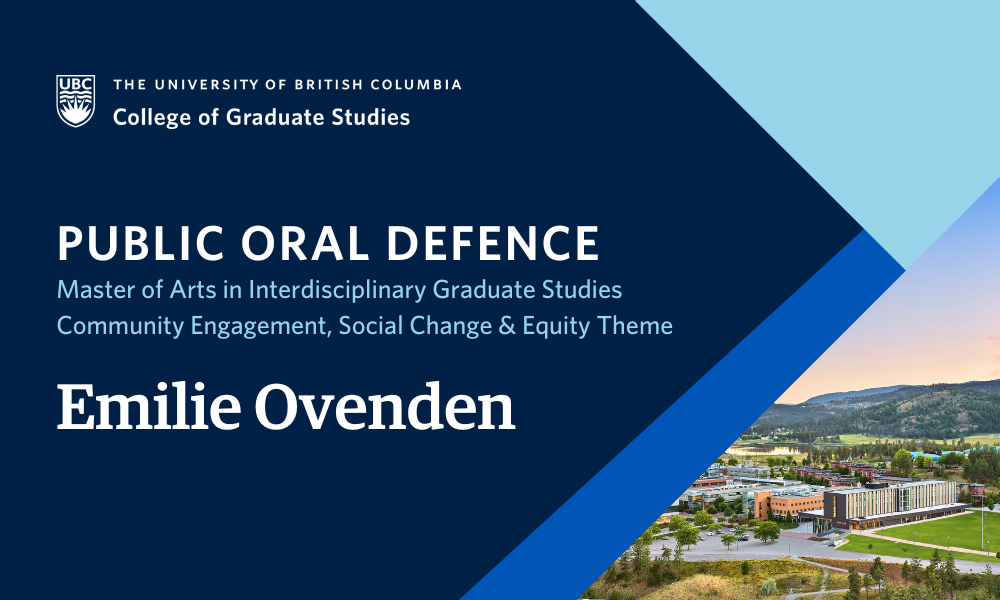
- This event has passed.
Thesis Defence: “Whose Community?” The Political Ecology of Community Forestry in British Columbia’s Sea to Sky Corridor
May 9 at 10:00 am - 2:00 pm

Emilie Ovenden, supervised by Dr. Sue Frohlick, will defend their thesis titled “’Whose Community?’
The Political Ecology of Community Forestry in British Columbia’s Sea to Sky Corridor” in partial fulfillment of the requirements for the degree of Master of Arts in Interdisciplinary Graduate Studies – Community Engagement, Social Change & Equity.
An abstract for Emilie Ovenden’s thesis is included below.
Defences are open to all members of the campus community as well as the general public. Registration is not required for in person defences.
ABSTRACT
With the mounting unpredictability of climate change and an international commitment to reducing greenhouse gas emissions, the community forestry model is increasingly being adopted by British Columbian communities attempting to take charge of climate adaptation and mitigation in their own locales. Although the benefits of community-based natural resource management are largely agreed upon, some political ecologists believe that the community forest model may sometimes deepen existing inequalities and serve powerful interests. This dynamic is particularly contentious in Canada, where Crown land and Indigenous traditional territories overlap, and particularly in British Columbia, where most First Nations never signed formal treaty agreements with colonial forces. This interdisciplinary research uses a modified version of the Teitelbaum framework to build a qualitative political ecological analysis of participatory governance, rights, local benefits, ecological benefits and relationships in the Cheakamus Community Forest. In the case study, the key finding across these indicators is that while there is a singular community forest, there is not a singular community, leading to differential experiences of access and control. Nonetheless, this research shows how the community forest model remains promising and is in a state of transformation that parallels shifting sociocultural values.